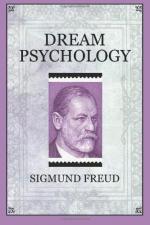On the occasion of a consultation a few years ago the subject was an intelligent and innocent-looking girl. Her attire was strange; whereas a woman’s garb is usually groomed to the last fold, she had one of her stockings hanging down and two of her waist buttons opened. She complained of pains in one of her legs, and exposed her leg unrequested. Her chief complaint, however, was in her own words as follows: She had a feeling in her body as if something was stuck into it which moved to and fro and made her tremble through and through. This sometimes made her whole body stiff. On hearing this, my colleague in consultation looked at me; the complaint was quite plain to him. To both of us it seemed peculiar that the patient’s mother thought nothing of the matter; of course she herself must have been repeatedly in the situation described by her child. As for the girl, she had no idea of the import of her words or she would never have allowed them to pass her lips. Here the censor had been deceived so successfully that under the mask of an innocent complaint a phantasy was admitted to consciousness which otherwise would have remained in the foreconscious.
Another example: I began the psychoanalytic treatment of a boy of fourteen years who was suffering from tic convulsif, hysterical vomiting, headache, &c., by assuring him that, after closing his eyes, he would see pictures or have ideas, which I requested him to communicate to me. He answered by describing pictures. The last impression he had received before coming to me was visually revived in his memory. He had played a game of checkers with his uncle, and now saw the checkerboard before him. He commented on various positions that were favorable or unfavorable, on moves that were not safe to make. He then saw a dagger lying on the checker-board, an object belonging to his father, but transferred to the checker-board by his phantasy. Then a sickle was lying on the board; next a scythe was added; and, finally, he beheld the likeness of an old peasant mowing the grass in front of the boy’s distant parental home. A few days later I discovered the meaning of this series of pictures. Disagreeable family relations had made the boy nervous. It was the case of a strict and crabbed father who lived unhappily with his mother, and whose educational methods consisted in threats; of the separation of his father from his tender and delicate mother, and the remarrying of his father, who one day brought home a young woman as his new mamma. The illness of the fourteen-year-old boy broke out a few days later. It was the suppressed anger against his father that had composed these pictures into intelligible allusions. The material was furnished by a reminiscence from mythology, The sickle was the one with which Zeus castrated his father; the scythe and the likeness of the peasant represented Kronos, the violent old man who eats his children and upon whom Zeus wreaks vengeance in so unfilial




